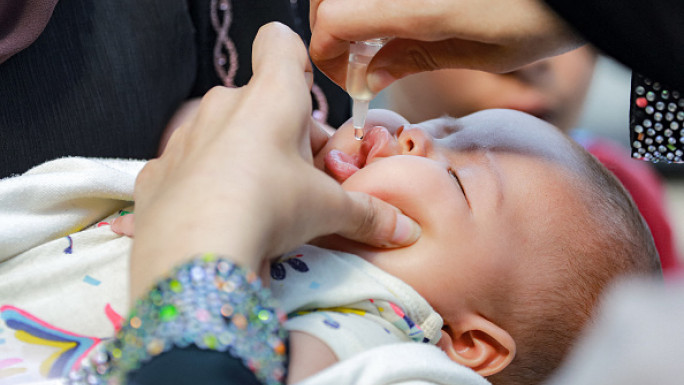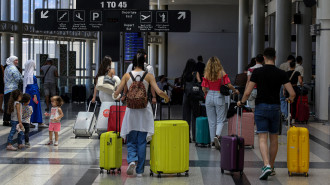
Women-only ride-sharing apps launch in Egypt after Uber sexual harassment scandals

In Egypt, ride-hailing apps were once celebrated as the better, safer alternatives for women, but following a string of harrowing incidents over the last three months, many women feel that the trust they have placed in these apps was broken, and their promise of security they offered lies now in question.
"I think Habiba’s death was the final straw," says Shahd Mohammed, a ride-hailer who has used these applications for over seven years.
"Before each trip, I wonder, will this be it? Is this the ride that leaves me traumatised for life, or worse, dead?"
In May, an Uber driver in Egypt was sentenced to 15 years in prison following the tragic death of 24-year-old Habiba El-Shamaa, who jumped from his car after an attempted abduction.
The driver was found guilty of attempted kidnapping, possessing cannabis, driving under the influence of narcotics, and forging official identification papers to create an Uber account.
The incident was followed by at least three more cases involving allegations of sexual harassment and assault against Uber and other popular ride-sharing apps, prompting widespread calls for a boycott on social media after several users shared stories of subpar service, aggressive drivers, and sexual harassment.
Uber expressed its “deep sadness” over these incidents, stating that it has been working closely with local authorities to provide necessary support for the investigation process.
“Women are now not only facing dangers in public transport but also in ride-hailing apps like Uber and Didi, which were once deemed safe,” says Entesar El-Saeed, director of the Cairo Foundation for Development and Law (CFDL).
“The precise rate of violence committed against women by drivers remains unclear as few women report to authorities due to fear of stigma.”
Ride hailing’s first years
More than 83 percent of Egyptian women have experienced sexual harassment at one point in their lives, and according to a recent study, public transportation is where women are most vulnerable to it.
“I was on my way home from the bank when a man touched me several times on a public transportation bus, only to run when I screamed after realising what was happening,” a 53-year-old victim, who wished to remain anonymous, tells The New Arab.
“I was traumatised ever since, but when Uber was first introduced, although expensive, it became my family’s go-to transportation option.”
Uber’s first few years in Egypt were marked by a progressive stance on the issue of sexual harassment. The then-startup had even collaborated in 2015 with HarassMap, a non-profit using interactive mapping to combat sexual harassment across Egypt, to design training sessions for its fleet of drivers.
“In those first few years, it was good, but then, something happened,” Mohammed tells The New Arab.
“Rides with questionable drivers became more frequent, and these recent incidents are proving that it’s far worse than we imagined.”
Solutions are on the rise
In a bid to provide a safer transportation option for women and girls, several Egyptian apps have emerged, offering women-only options to avoid risks like abduction and harassment.
Wasaleeny, a ride-sharing app exclusively for female drivers, started as a WhatsApp group nearly two years ago in the Fifth Settlement area.
"We focused on providing job opportunities for female drivers," Farag El-Sayed, founder of Wasaleeny tells The New Arab, adding that the concept quickly expanded to other areas like Nasr City, Madinaty, Heliopolis, Shorouk, 6th of October City, and Sheikh Zayed.
The app, set to launch in June, includes a “distress feature” that accurately monitors every detail and can be opened without an internet connection. Today, Wasaleeny covers 60 areas in Cairo and is used by over 120,000 women.
"We haven't charged any commission from either the client or the car owner yet, and the number of cars has exceeded 800," El-Sayed adds.
Farida Omar, a user of the app, expressed her fear and discomfort when riding with male drivers in popular ride-hailing apps, especially since companies have not taken strong actions following repeated incidents.
"I had been searching for such a service for a long time and felt reassured when I found a transportation option driven by women. In my view, this reduces the risk of physical and sexual violence and the psychological pressure we experience when riding with men.
“While using Wasaleeny, on the other hand, the captain arrived on time, the car was in excellent condition, and even the AC was turned on,” Farida Omar, a user of Wasaleeny, recounts her “pleasant experience” with the app.
"She was polite and professional throughout the trip, spoke minimally, and didn't pry. After finding the location, she didn't charge more than the agreed EGP 35."
After running her errands, Omar posted on the group to request a return trip but could not find an available captain, forcing her to request Uber, which quoted EGP 130 for the same destination. The price was too much, and Omar had to decline, eventually taking a microbus.
"Aside from the courtesy and professionalism, you need to book your Wasaleeny ride at least three hours in advance," she explains.
Youssef Shehab El-Din, a software engineer and founder of Share Drive, launched the carpooling app in 2022. Despite carpooling being a cheaper and more economical option than ride-hailing apps, the concept was largely absent from the Egyptian market.
Shehab El-Din said that the idea came to him when he was searching for a carpooling option for his commutes. While the service was common in Europe and the US, he found only groups on Facebook, Telegram, and WhatsApp, which lacked organization and supervision to ensure safety.
Today, more than 1,500 people use his app in Cairo, Giza, Gharbia, Assiut, Alexandria, and South Sinai governorates.
With 65 percent of trips via Share Drive initiated by women and the rising incidents of sexual harassment, Shehab El-Din introduced a "female ride" option in 2023.
"Our app has seen increased usage for its role in improving safety," he explains. "There is no minimum fare, and women can choose 'female ride' to have only female drivers respond to their requests."
Mohammed, a recent user of the app, says that she had tried the female ride option more than once, and was able to carpool with other women.
“It’s very wholesome, and it can save a lot of money when the schedules of different riders align, which doesn’t come that easily,” she says.
“But, if the app does indeed become more popular, I think it’s a better, safer option.”
Fatma Elzahraa Badwy is an Egyptian journalist interested in investigative reporting, cultural affairs, and women's rights. She currently contributes to Rose al-Yusuf magazine and writes for several independent platforms, including Al Manassa and Fekr Tany
This article is published in collaboration with Egab







